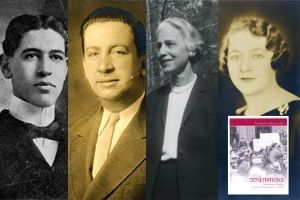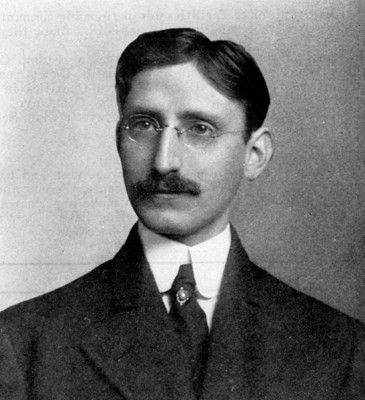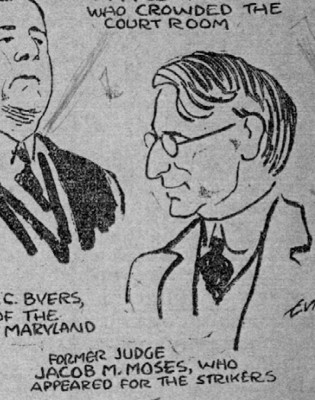Ten in the Twentieth: Baltimore Jews and Social Justice 1910s

Article by Dr. Deborah R. Weiner. Originally published in Generations 2009-2010: 50th Anniversary Double Issue: The Search for Social Justice.
The Baltimore Jewish community has produced many leaders who have worked to make the world a better place. The range of issues they have addressed is impressive: from women’s suffrage to civil rights, labor relations to helping the elderly, refugee resettlement to eliminating poverty, and much more.
This chronology traces the careers of ten Baltimoreans who stood up for social change, with each person’s entry revolving around a turning point—one for each decade of the twentieth century. This is by no means a “Ten Best” list. The people included here are remarkable for what they accomplished, but others, equally remarkable, could have been chosen as well. These profiles should be seen as representative of a larger group of Baltimore Jews who have made major contributions to their communities and to the broader society in myriad ways.
The 1910s: Jacob Moses
Click here to start from the beginning.
1915: During a time of intense labor turmoil, Jacob Moses (1873-1968) is named arbitrator in Baltimore clothing industry disputes, selected jointly by union leader Sidney Hillman and manufacturer Sigmund Sonneborn. It is but one important facet of the career of this quintessential Progressive.

His concern with fairness made Moses not only a sought-after arbitrator, but an advocate for the rights of those he felt were treated unequally. As an attorney, state senator, Juvenile Court judge, and civic leader, Moses championed the principle of fair treatment under the law. He proposed juvenile justice reform because delinquent children did not have recourse to the legal protections of adults. He sought to establish a detention center for indigent defendants who could not make bail, because they were unfairly forced to languish in jail before being proved guilty. In 1924, he led a delegation that lobbied (unsuccessfully) for equal pay for female high school teachers.

Above all, Moses was a staunch feminist. He remained a vocal proponent of women’s suffrage after the premature death in 1918 of his wife Hortense, a suffragist and leader of Jewish women’s groups. In the 1920s he endorsed a national equal rights bill, proclaiming, “I believe that men and women should be equal in every respect before the law.” Moses also dedicated himself to Jewish causes. As a young man he presided over the Maccabeans, which aided Jewish youth; in the 1920s he became a leading Zionist—unusual for someone from a privileged German Jewish family.
